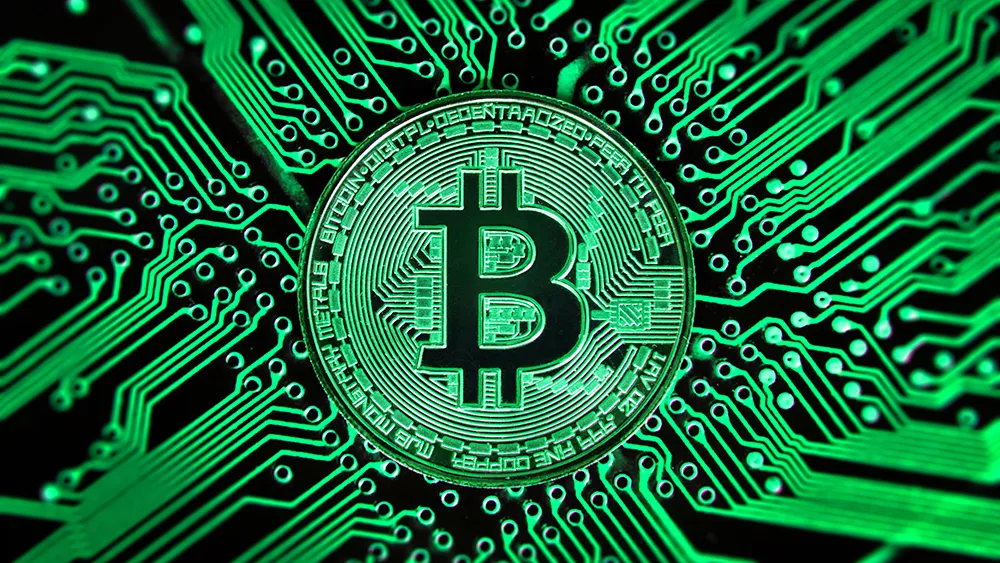Picture this: it’s 2018, and my friend Sarah is frantically refreshing her phone, watching Bitcoin’s price soar to $20,000, then crash. She was hooked, convinced crypto was the future of money. Fast forward to 2025, and the question remains: will Bitcoin and other cryptocurrencies replace traditional cash, or are they just a flashy trend? With my own experience dabbling in crypto and helping friends navigate this space, I’ll dive into whether cryptocurrencies are poised to redefine finance. Let’s explore the potential, challenges, and tools to get started in this digital revolution.
What Makes Cryptocurrency a Contender for the Future?
Cryptocurrency, like Bitcoin, is digital money powered by blockchain—a decentralized, secure ledger. It promises faster, cheaper transactions without banks or governments. Its growing adoption suggests it could reshape finance, but hurdles remain.
The Appeal of Decentralization
Unlike dollars or euros controlled by central banks, Bitcoin operates on a peer-to-peer network. This freedom from intermediaries excites those wary of traditional financial systems.
Real-World Adoption
From Tesla accepting Bitcoin to El Salvador making it legal tender, crypto is gaining traction. In 2024, over 400 million people globally owned crypto, per CoinMarketCap.
Bitcoin: The Pioneer of Crypto
Bitcoin, launched in 2009 by the mysterious Satoshi Nakamoto, is the poster child for cryptocurrency. Its limited supply of 21 million coins makes it a “digital gold” for investors.
Why Bitcoin Stands Out
Bitcoin’s value comes from scarcity and trust in its blockchain. Its price hit $103,000 in December 2024, showing its staying power, though volatility remains a concern.
Bitcoin vs. Traditional Money
| Aspect | Bitcoin | Traditional Money |
|---|---|---|
| Control | Decentralized, no central authority | Government/central bank controlled |
| Transaction Speed | Minutes to hours | Days for international transfers |
| Fees | Often lower (~$1–$5) | Higher (e.g., $20–$50 for wires) |
| Supply | Fixed at 21 million | Unlimited, subject to inflation |
Other Cryptocurrencies in the Race
Beyond Bitcoin, thousands of cryptocurrencies like Ethereum and stablecoins are pushing boundaries. Each offers unique features that could shape money’s future.
Ethereum and Smart Contracts
Ethereum’s blockchain supports smart contracts—self-executing agreements for loans or NFTs. This versatility makes it a hub for decentralized finance (DeFi).
Stablecoins for Stability
Stablecoins like USDC, pegged to the US dollar, reduce volatility, making them ideal for everyday transactions like buying coffee or paying rent.
Why Crypto Could Be the Future
Crypto’s potential lies in its ability to solve real-world financial problems. I once helped a friend in Venezuela send money to family abroad using Bitcoin—faster and cheaper than banks.
Advantages of Cryptocurrency
- Global Access: Anyone with internet can use crypto, bypassing banking barriers.
- Low Fees: Cross-border payments cost pennies compared to bank fees.
- Transparency: Blockchain’s public ledger ensures traceable, secure transactions.
Growing Institutional Support
Major players like PayPal and Visa now support crypto payments. In 2025, BlackRock’s Bitcoin ETF saw $10 billion in inflows, signaling mainstream trust.
Challenges Holding Crypto Back
Despite its promise, crypto faces hurdles that could slow its path to becoming the future of money. Volatility and regulation are the biggest roadblocks.
Price Volatility
Bitcoin’s price swings—$103,000 in 2024, down to $60,000 in 2023—scare off risk-averse users. Stablecoins help, but they’re not foolproof.
Regulatory Uncertainty
Governments are cracking down. The US SEC tightened crypto rules in 2024, and China’s ban on crypto trading shows global inconsistency.
Security Risks
Hacks and scams are real. In 2023, $3.7 billion was stolen in crypto hacks, per Chainalysis. Losing your private key means losing your money.
Pros and Cons of Crypto as Future Money
- Pros: Fast, low-cost transactions; financial inclusion; inflation resistance.
- Cons: Volatility; regulatory risks; energy consumption (Bitcoin mining uses ~150 TWh annually).
How to Get Started with Crypto
Curious about crypto? Start small and safe. I began with $100 on Coinbase, learning the ropes without risking my life savings.
Best Platforms for Beginners
- Coinbase: User-friendly, ideal for newbies (Coinbase).
- Binance: Offers diverse coins and low fees (Binance).
- Kraken: Strong on security and customer support (Kraken).
Steps to Dive In
- Sign up on a trusted exchange and verify your identity.
- Set up a wallet (e.g., MetaMask for hot wallets, Ledger for cold).
- Buy a small amount of Bitcoin or Ethereum to start.
- Learn tax rules—crypto gains are taxable in the US.
Hot vs. Cold Wallets
- Hot Wallets: Online, convenient (e.g., MetaMask), but hackable.
- Cold Wallets: Offline, secure (e.g., Ledger Nano X), but less accessible.
Is Crypto Truly the Future?
Crypto’s potential is huge, but it’s not a done deal. It could complement traditional money rather than replace it, especially with stablecoins bridging the gap.
The Hybrid Future
Central bank digital currencies (CBDCs), like China’s digital yuan, blend crypto’s tech with government control. By 2026, 130 countries are exploring CBDCs, per the IMF.
What Experts Say
Analysts on X predict crypto adoption will hit 1 billion users by 2030, but traditional money will likely coexist due to trust and stability.
People Also Ask (PAA)
Will cryptocurrency replace traditional money?
Crypto could complement fiat money but is unlikely to fully replace it soon due to volatility and regulatory challenges.
Is Bitcoin a good investment for the future?
Bitcoin has growth potential but carries risks like price swings. Only invest what you can afford to lose.
How can I buy cryptocurrency safely?
Use reputable exchanges like Coinbase, secure your wallet, and enable two-factor authentication.
What are the risks of cryptocurrency?
Risks include price volatility, hacks, scams, and regulatory changes that could impact value or legality.
FAQ Section
Can cryptocurrency be used for everyday purchases?
Yes, places like Overstock and some cafes accept Bitcoin or stablecoins, but adoption is still growing.
Why is Bitcoin so volatile?
Bitcoin’s price fluctuates due to supply/demand, market sentiment, and news like regulatory changes or ETF approvals.
Will governments ban cryptocurrency?
Some countries restrict crypto, but outright bans are rare. The US focuses on regulation, not prohibition.
How does crypto compare to cash?
Crypto offers faster, cheaper global transactions but lacks cash’s universal acceptance and stability.
What’s the best way to learn about crypto?
Start with platforms like CoinMarketCap, follow crypto news on X, and experiment with small investments.
Final Thoughts
Bitcoin and cryptocurrency have the potential to reshape money, offering freedom, speed, and inclusion. But volatility, regulation, and security risks mean they’re not ready to dethrone cash just yet. For now, crypto is a powerful tool for the future—part of a hybrid financial world. Curious? Start with a trusted platform like Coinbase and explore discussions on X. The future of money is evolving—will you be part of it?






Leave a Reply